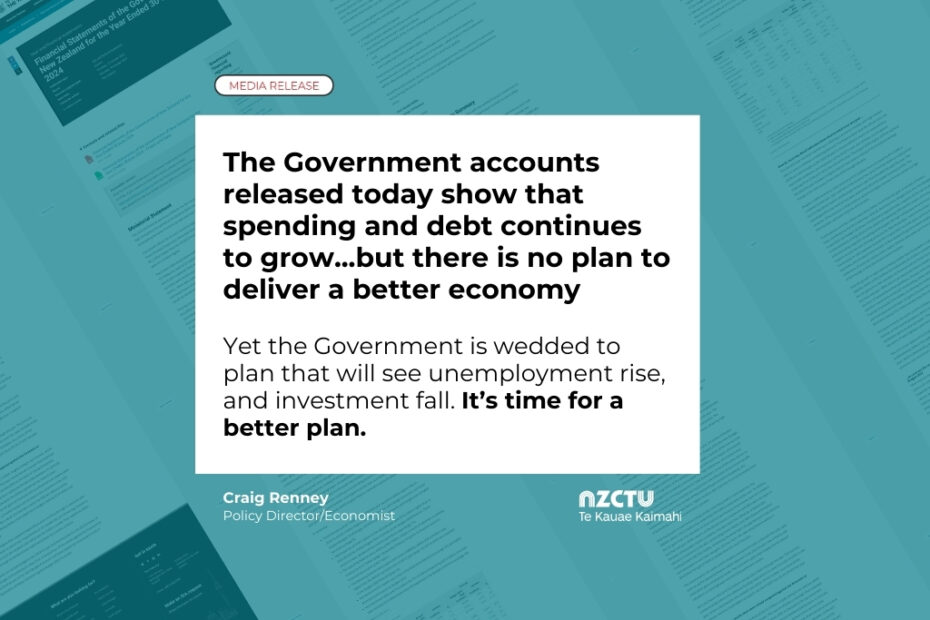“The Government accounts released today show that spending and debt continues to grow under the current Government, but there is no plan to deliver a better economy,” said NZCTU Te Kauae Kaimahi Economist Craig Renney.
“Net Core Crown Debt increased by $20bn last year, with revenue from taxation also rising by $8bn. The OBEGAL deficit increased $3.4bn last year alone, to $12.9bn.
Finance Minister Nicola Willis admitted, “The accounts show the corrosive impact of low growth and low productivity.” Yet there is no plan to solve this problem and we are cutting back on the investments needed to lift both, Renney said.*
“The Government accounts showed our overreliance on income tax and GST taxes to balance the books. Source deductions from wages increased 10.1% during the last year. The GST take increased by 4.1%. But other sources of taxation have not increased at the same rate, or have fallen in the form of corporate taxation (-5.9%). We need a better conversation about how taxes are being levied and why.” Renney said.
“Spending on welfare has increased by 8%, with Jobseeker Support expenses rising by 17%. Welfare payments would be higher if the one-off $600m cost-of-living support is removed. Unemployment is expected to rise significantly in the future, meaning that welfare expenses will be higher in the future.”
Renney said “The Government has provisioned $500m for the Cook Straight Ferry (iREX) Costs, which is only the cost of the works abandoned to date. This doesn’t include the cost of cancelling the ferry contract, nor the cost of purchasing the replacement ferries necessary. The Government is likely facing a $bn bill for that decision alone.”
“The Minister signalled new cuts in her speech at the event, while requiring new economic growth to deliver on their financial aspirations. Yet decisions like iREX show that the Government has no means of delivering sustainable growth. Health New Zealand is looking for $2bn in savings right now, yet the Government is looking for further savings in spending on top.”
“The Government’s fiscal strategy needs to change. Government debt is low by international standards, and there is no shortage of projects to invest in. These would improve employment and economic outcomes – both of which will benefit working people. Yet the Government is wedded to plan that will see unemployment rise, and investment fall. It’s time for a better plan.” Renney said.
* Erratum: A previous version of this release contained a misquote.
